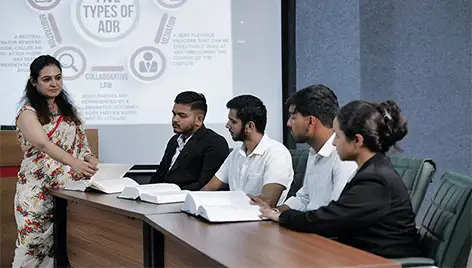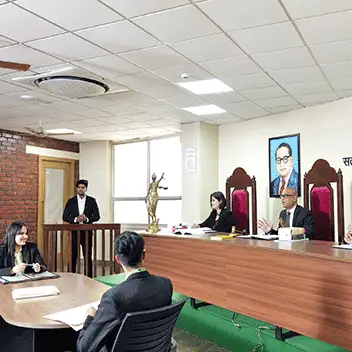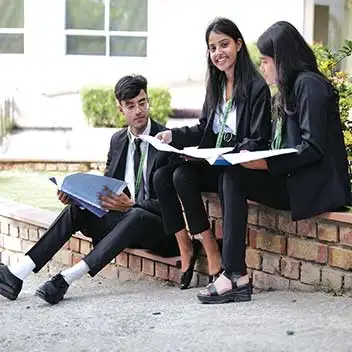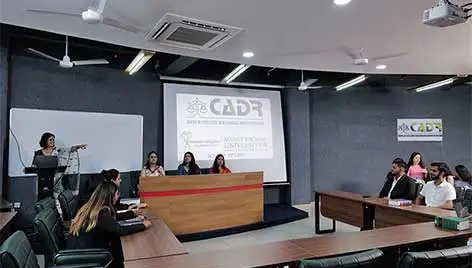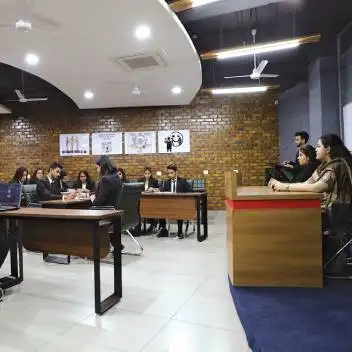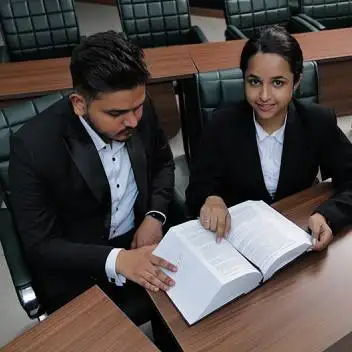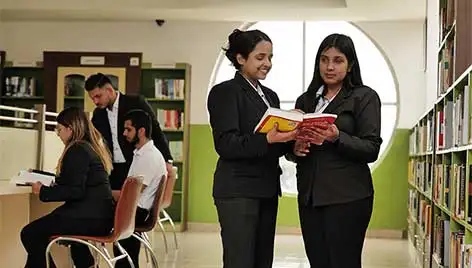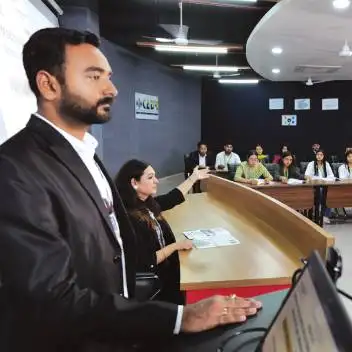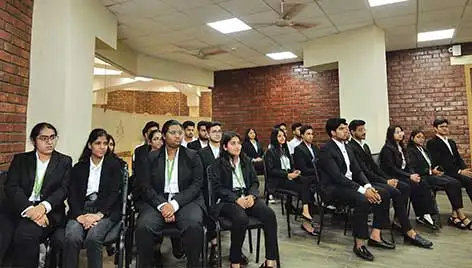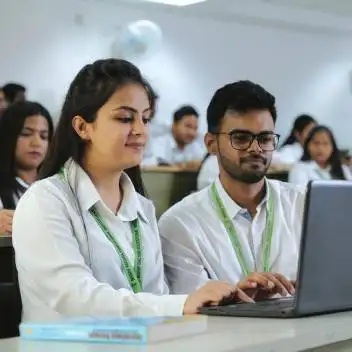Overview
School of Law is proud to provide the students with a state-of-the-art moot court facility recognising the importance of practical training and focussing on teaching students the nuances of mooting. The School of Law has invested in creating a stimulating environment for students to hone their advocacy skills and gain hands-on experience.
The Moot Court Room is well designed courtroom with seating arrangements for judges, witnesses and the audience, equipped with all necessary amenities to conduct not just moot court activities but also mock trials and other legal exercises. The space is also equipped with advanced audio-visual equipment to record and evaluate students basis their performance. The students can also participate in virtual competitions through video conferencing facility and connect with professionals across the world.
Overall, the moot court facility at the School of Law, Manav Rachna University, stands as a testament to the institution's commitment to providing a comprehensive and immersive learning experience for its law students. It serves as a hub for legal education, practical training, and intellectual growth, empowering students to become competent and skilled legal professionals.



